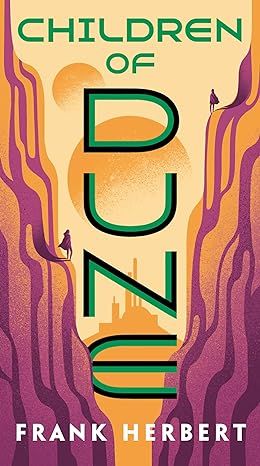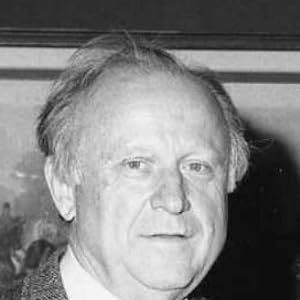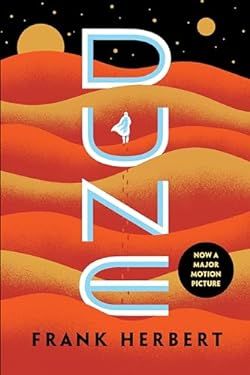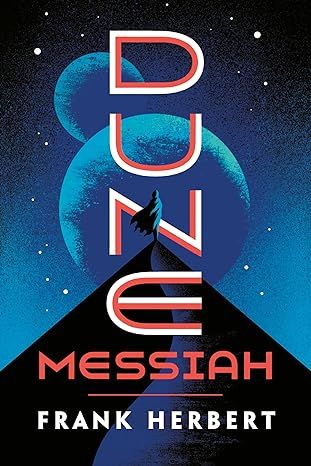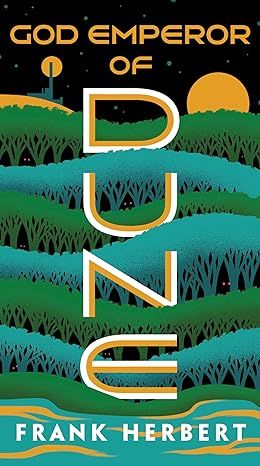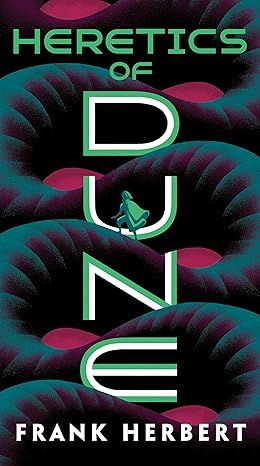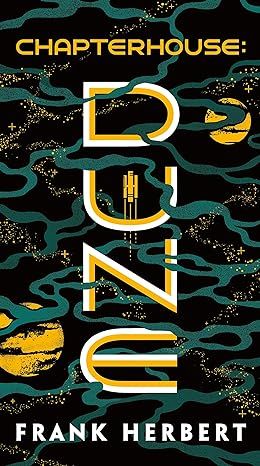Children of Dune
4.6
-
18,180 ratings
Book Three in the Magnificent Dune Chronicles—the Bestselling Science Fiction Adventure of All Time
The Children of Dune are twin siblings Leto and Ghanima Atreides, whose father, the Emperor Paul Muad’Dib, disappeared in the desert wastelands of Arrakis nine years ago. Like their father, the twins possess supernormal abilities—making them valuable to their manipulative aunt Alia, who rules the Empire in the name of House Atreides.
Facing treason and rebellion on two fronts, Alia’s rule is not absolute. The displaced House Corrino is plotting to regain the throne while the fanatical Fremen are being provoked into open revolt by the enigmatic figure known only as The Preacher. Alia believes that by obtaining the secrets of the twins’ prophetic visions, she can maintain control over her dynasty.
But Leto and Ghanima have their own plans for their visions—and their destinies....
Kindle
$9.99
Available instantly
Audiobook
$0.00
with membership trial
Hardcover
$28.19
Paperback
$8.99
Ships from
Amazon.com
Payment
Secure transaction
ISBN-10
0593098242
ISBN-13
978-0593098240
Print length
624 pages
Language
English
Publisher
Ace
Publication date
June 03, 2019
Dimensions
4.19 x 1.31 x 7.56 inches
Item weight
2.31 pounds
Frequently bought together
Popular highlights in this book
To suspect your own mortality is to know the beginning of terror; to learn irrefutably that you are mortal is to know the end of terror.
Highlighted by 3,697 Kindle readers
Is your religion real when it costs you nothing and carries no risk? Is your religion real when you fatten upon it? Is your religion real when you commit atrocities in its name?
Highlighted by 3,580 Kindle readers
The one-eyed view of our universe says you must not look far afield for problems. Such problems may never arrive. Instead, tend to the wolf within your fences. The packs ranging outside may not even exist.
Highlighted by 3,054 Kindle readers
Product details
ASIN :
B0015DTW50
File size :
2470 KB
Text-to-speech :
Enabled
Screen reader :
Supported
Enhanced typesetting :
Enabled
X-Ray :
Enabled
Word wise :
Enabled
Editorial reviews
Praise for Children of Dune
“A major event.”—Los Angeles Times
“Ranging from palace intrigue and desert chases to religious speculation and confrontations with the supreme intelligence of the universe, there is something here for all science fiction fans.”—Publishers Weekly
“Herbert adds enough new twists and turns to the ongoing saga that familiarity with the recurring elements brings pleasure.”—Challenging Destiny
Praise for Dune
“I know nothing comparable to it except Lord of the Rings.”—Arthur C. Clarke
“A portrayal of an alien society more complete and deeply detailed than any other author in the field has managed...a story absorbing equally for its action and philosophical vistas.”—The Washington Post Book World
“One of the monuments of modern science fiction.”—Chicago Tribune
“Powerful, convincing, and most ingenious.”—Robert A. Heinlein
“Herbert’s creation of this universe, with its intricate development and analysis of ecology, religion, politics and philosophy, remains one of the supreme and seminal achievements in science fiction.”—Louisville Times
Sample
Muad’Dib’s teachings have become the playground of scholastics, of the superstitious and the corrupt. He taught a balanced way of life, a philosophy with which a human can meet problems arising from an ever-changing universe. He said humankind is still evolving, in a process which will never end. He said this evolution moves on changing principles which are known only to eternity. How can corrupted reasoning play with such an essence? —WORDS OF THE MENTAT DUNCAN IDAHO
Aspot of light appeared on the deep red rug which covered the raw rock of the cave floor. The light glowed without apparent source, having its existence only on the red fabric surface woven of spice fiber. A questing circle about two centimeters in diameter, it moved erratically—now elongated, now an oval. Encountering the deep green side of a bed, it leaped upward, folded itself across the bed’s surface.
Beneath the green covering lay a child with rusty hair, face still round with baby fat, a generous mouth—a figure lacking the lean sparseness of Fremen tradition, but not as water-fat as an off-worlder. As the light passed across closed eyelids, the small figure stirred. The light winked out.
Now there was only the sound of even breathing and, faint behind it, a reassuring drip-drip-drip of water collecting in a catch-basin from the windstill far above the cave.
Again the light appeared in the chamber—slightly larger, a few lumens brighter. This time there was a suggestion of source and movement to it: a hooded figure filled the arched doorway at the chamber’s edge and the light originated there. Once more the light flowed around the chamber, testing, questing. There was a sense of menace in it, a restless dissatisfaction. It avoided the sleeping child, paused on the gridded air inlet at an upper corner, probed a bulge in the green and gold wall hangings which softened the enclosing rock.
Presently the light winked out. The hooded figure moved with a betraying swish of fabric, took up a station at one side of the arched doorway. Anyone aware of the routine here in Sietch Tabr would have suspected at once that this must be Stilgar, Naib of the Sietch, guardian of the orphaned twins who would one day take up the mantle of their father, Paul Muad’Dib. Stilgar often made night inspections of the twins’ quarters, always going first to the chamber where Ghanima slept and ending here in the adjoining room, where he could reassure himself that Leto was not threatened.
I’m an old fool, Stilgar thought.
He fingered the cold surface of the light projector before restoring it to the loop in his belt sash. The projector irritated him even while he depended upon it. The thing was a subtle instrument of the Imperium, a device to detect the presence of large living bodies. It had shown only the sleeping children in the royal bedchambers.
Stilgar knew his thoughts and emotions were like the light. He could not still a restless inner projection. Some greater power controlled that movement. It projected him into this moment where he sensed the accumulated peril. Here lay the magnet for dreams of grandeur throughout the known universe. Here lay temporal riches, secular authority and that most powerful of all mystic talismans: the divine authenticity of Muad’Dib’s religious bequest. In these twins—Leto and his sister Ghanima—an awesome power focused. While they lived, Muad’Dib, though dead, lived in them.
These were not merely nine-year-old children; they were a natural force, objects of veneration and fear. They were the children of Paul Atreides, who had become Muad’Dib, the Mahdi of all the Fremen. Muad’Dib had ignited an explosion of humanity; Fremen had spread from this planet in a jihad, carrying their fervor across the human universe in a wave of religious government whose scope and ubiquitous authority had left its mark on every planet. Yet these children of Muad’Dib are flesh and blood, Stilgar thought. Two simple thrusts of my knife would still their hearts. Their water would return to the tribe.
His wayward mind fell into turmoil at such a thought.
To kill Muad’Dib’s children!
But the years had made him wise in introspection. Stilgar knew the origin of such a terrible thought. It came from the left hand of the damned, not from the right hand of the blessed. The ayat and burhan of Life held few mysteries for him. Once he’d been proud to think of himself as Fremen, to think of the desert as a friend, to name his planet Dune in his thoughts and not Arrakis, as it was marked on all of the Imperial star charts.
How simple things were when our Messiah was only a dream, he thought. By finding our Mahdi we loosed upon the universe countless messianic dreams. Every people subjugated by the jihad now dreams of a leader to come.
Stilgar glanced into the darkened bedchamber.
If my knife liberated all of those people, would they make a messiah of me?
Leto could be heard stirring restlessly in his bed.
Stilgar sighed. He had never known the Atreides grandfather whose name this child had taken. But many said the moral strength of Muad’Dib had come from that source. Would that terrifying quality of rightness skip a generation now? Stilgar found himself unable to answer this question.
He thought: Sietch Tabr is mine. I rule here. I am a Naib of the Fremen. Without me there would have been no Muad’Dib. These twins, now . . . through Chani, their mother and my kinswoman, my blood flows in their veins. I am there with Muad’Dib and Chani and all the others. What have we done to our universe? Stilgar could not explain why such thoughts came to him in the night and why they made him feel so guilty. He crouched within his hooded robe. Reality was not at all like the dream. The Friendly Desert, which once had spread from pole to pole, was reduced to half its former size. The mythic paradise of spreading greenery filled him with dismay. It was not like the dream. And as his planet changed, he knew he had changed. He had become a far more subtle person than the one-time sietch chieftain. He was aware now of many things—of statecraft and profound consequences in the smallest decisions. Yet he felt this knowledge and subtlety as a thin veneer covering an iron core of simpler, more deterministic awareness. And that older core called out to him, pleaded with him for a return to cleaner values.
Read more
About the authors
Frank Herbert
Frank Herbert (1920-86) was born in Tacoma, Washington and worked as a reporter and later editor of a number of West Coast newspapers before becoming a full-time writer. His first SF story was published in 1952 but he achieved fame more than ten years later with the publication in Analog of 'Dune World' and 'The Prophet of Dune' that were amalgamated in the novel Dune in 1965.
Read more
Reviews
Customer reviews
4.6 out of 5
18,180 global ratings
CD
5
The Perfect Gift
Reviewed in the United States on May 12, 2024
Verified Purchase
This and the third book in the series were the perfect gifts for a grandson who is hooked on the Dune story after reading the first book!
CmpCmp
5
Second Favorite of Frank Herbert’s Books
Reviewed in the United States on March 30, 2024
Verified Purchase
So far, Dune is my favorite of Herbert’s books, but this book is a close second. I appreciate the pacing and plot of this one more than Messiah. I also appreciate that I’ve been able to experience such amazing writing in paperbacks with attractive covers. There are some beautiful versions of these books, but outside of Dune, I don’t expect to read and reread the whole series every year. That means that I don’t need durability as much as I would for things I read over and over again. Or maybe I will read it over and over again - I really did enjoy it after all.
Read more
Frank Daughtry
5
A maker of worlds
Reviewed in the United States on May 15, 2024
Verified Purchase
This is merely filler so that the Post will submit. The tagline says it all in my opinion enjoy reading.
Top Frank Herbert titles
View allSimilar Books
Best sellers
View all
The Tuscan Child
4.2
-
100,022
$8.39

The Thursday Murder Club: A Novel (A Thursday Murder Club Mystery)
4.3
-
155,575
$6.33

Sapiens: A Brief History of Humankind
4.6
-
140,302
$13.49

The Butterfly Garden (The Collector, 1)
4.3
-
88,556
$9.59

Things We Hide from the Light (Knockemout Series, 2)
4.4
-
94,890
$11.66

The Last Thing He Told Me: A Novel
4.3
-
154,085
$2.99

The Perfect Marriage: A Completely Gripping Psychological Suspense
4.3
-
143,196
$9.47

The Coworker
4.1
-
80,003
$13.48

First Lie Wins: A Novel (Random House Large Print)
4.3
-
54,062
$14.99

Mile High (Windy City Series Book 1)
4.4
-
59,745
$16.19

Layla
4.2
-
107,613
$8.99

The Locked Door
4.4
-
94,673
$8.53
